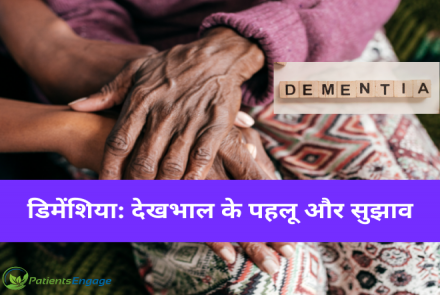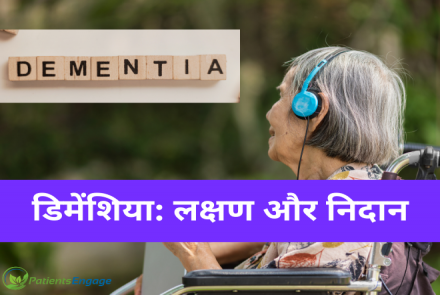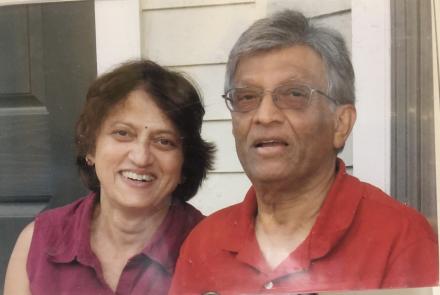
Neha Sinha, a clinical psychologist by profession talks about how emotional connect is very important for people with dementia. Even if they have loss of actual memory, they remain receptive to emotions as well as to the body language of people around them.
Each individual is unique and so are his or her experiences, memories and feelings. There is a general apathy towards dementia especially when it comes to remembering the person they are, the rich history they hold. People with dementia might not be capable of fulfilling the responsibilities of a relationship but they still enjoy being in one. They are capable of understanding love, warm hugs and connections to their past as well as showing affection in their own way. Being diagnosed with dementia does not end the need of connecting with others nor does it limit their ability to perceive emotions. Infact, it may become more pronounced.
What is emotional memory?
Roughly memories can be divided into 2 categories: factual memory (semantic memory) and emotional memory (episodic memory).
Factual memory is related to the storage of facts, figures, dates, names and so on. Emotional memory refers to the memory of feelings associated with experiences.
Emotional experiences, good or bad, have a lasting effect on us, we can simply close our eyes and go back to a significant event in our lives and experience those very emotions whether or not we remember the facts. If we have a heated argument with somebody, we often continue to have an unpleasant feeling long after the conversation happened- sometimes resulting in bad mood for more than a day. This bad mood is caused by our emotional memory; we are not actively recalling the conversation every waking hour but the after taste remains.
Take this a step further. Let’s say if there was a particular song playing during this argument, the next time the song plays in a completely different situation- chances are that you would suddenly feel uncomfortable. This is referred to as building memories through associations. Smell also plays a very crucial role in building associations- remember when a particular aroma took you back to your childhood?
Emotional memory and feelings in dementia
Difficulty in retaining facts or impaired memory is the hallmark of dementia. But not all is forgotten in dementia.
People with dementia become more sensitive to emotions and perceiving them. They start creating memories through associations. For example: If the caregiver giving them a shower was rude, there are high chances that you see some behavioral symptoms- (agitation, refusal to have food, eyes tightly shut, resistance) later in the day. If you try asking them what happened, they have no recollection obviously of what happened in the shower and you have no way of finding out.
This can be understood in a positive context as well - music therapy for instance- playing their favourite record triggers positive associations and you see a positive effect for the next couple of hours. Playing music before sunset for those who experience sun-downing can also prevent some symptoms.
Emotions and feelings are very relevent in dementia even in the last stages. Our tone, touch, body language, non-verbal cues; everything adds up to how they perceive their current world.
Words and sentences don’t make sense any more but your behaviour does. People with dementia instantly react to a genuine smile (or the lack of one). They can sense if you are being patronising, feeling impatient or are doing your job grudgingly.
Your emotions can be passed on to them.
Very often people make the mistake about having a conversation about them, in front of them like they don’t exist. Or continue to chat with each other without involving them. These things don’t go unnoticed. Maintaining their privacy, upholding dignity and being respectful plays a very significant role in their emotional well-being.
Recent studies have proven that with good mood and positive associations, a person is more oriented, coherent and happy. Emotional well being contributes a great deal to their quality of life (QOL).
How do we take care and nurture feelings of people with dementia?
- Don’t treat them like a child- assuming they won’t understand, being patronising, feeding them or choosing clothes without their opinion
- Touch, warmth, smile and tone- everything is perceived and remembered!
- Non verbal cues are very important- your frustration and discomfort can be transferred
- Play detective and always investigate a bad mood or reaction- foul mood is not an inherent trait but the remnants of an episode
- Observe observe observe: after a while, you would be able to understand what they remember and how and use it to their benefit
- Recreate positive emotions: can their room have elements of their childhood home? Can we start a celebration or ritual like they used to? Lay the table like they have always done, serve tea in a tea-pot like they were used to? Those memories are intact till very late and reaching out to them can have very encouraging results
- Since expression is a challenge and often leads to agitation, finding non-verbal activities to give them a purpose is very important. Try and link it to a past interest or hobby- watering plants, using colours, simple housework like shelling pea pods, folding clothes, etc; listening to music, watching a performance, playing with toddlers, knitting, feeding/brushing pets and so on. The idea is to find meaningful activities.
- Respect their decisions: very often caregivers have a set agenda in the caregiving schedule: times are set for bathing, feeding, walk, activities etc. While a structure is very important, there are times when they refuse to do one of the above. So, don’t push! Skipping one meal will not be that harmful as you think it can be. If they push your hand away while feeding, gently say it’s okay and you will come back later. This helps them feel valued and prevents a negative association with feeding.
Creating an environment that caters to their emotional and intellectual needs is very important in dementia. Emotions are what make us human. No illness or disease can take that away from us.
Neha Sinha, a clinical psychologist by training, is the CEO of Epoch Eldercare, an elder care organisation.















